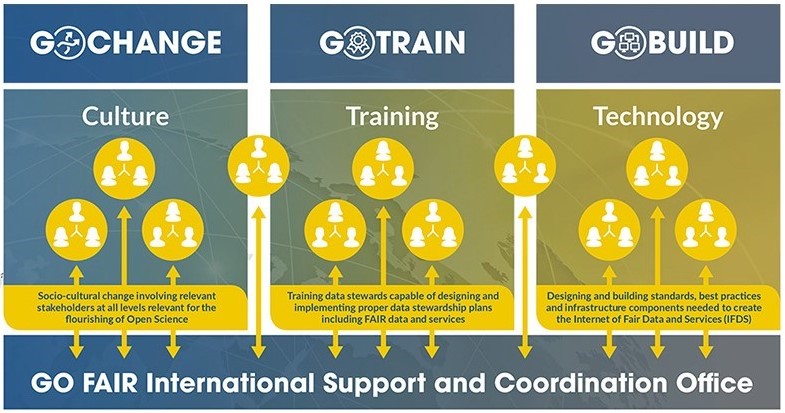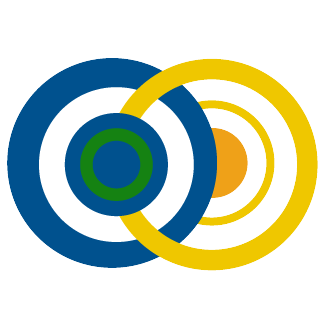GO FAIR ist eine internationale und interdisziplinäre Bottom-Up-Initiative zur Implementierung der FAIR-Prinzipien in Forschungsinfrastrukturen. Sie wurde vom Bundesministerium für Forschung und Bildung (BMBF) gemeinsam mit den Wissenschaftsministerien in Frankreich und in den Niederlanden initiiert. Mehrere global verteilte Institutionen, darunter auch das Leibniz-Informationszentrum Wirtschaft (ZBW) in Hamburg und Kiel, koordinierten im Förderzeitraum von 2017 bis 2021 die Aktivitäten innerhalb der Initiative.

Implementation Networks (IN)
GO FAIR organisiert sich hauptsächlich in selbstverwalteten, Community-betriebenen Implementation Networks (IN), die sich innerhalb einer oder mehrerer der drei Säulen GO BUILD (Technologie), GO CHANGE (Datenkultur) und GO TRAIN (Training) engagieren. Derzeit gibt es 14 aktive Implementation Networks, darunter auch das Data Stewardship Competence Centers Implementation Network (DSCC-IN) mit dem deutschen Chapter GO UNITE!.

FAIR-Prinzipien
Die 2016 von Mark D. Wilkinson, Michel Dumontier, IJsbrand Jan Aalbersberg, et al. publizierten „FAIR Guiding Principles for scientific data management and stewardship“ (https://doi.org/10.1038/sdata.2016.18) beschreiben die maschinell umsetzbare Auffindbarkeit (findable), Zugänglichkeit (accessible), Interoperabilität (interopable) und Wiederwendbarkeit (reusable) von Forschungsdaten und ‑services. Sie bilden den Ausgangspunkt der GO FAIR Initiative.
Findable
F1. (Meta)data are assigned a globally unique and persistent identifier.
F2. Data are described with rich metadata (defined by R1 below).
F3. Metadata clearly and explicitly include the identifier of the data they describe.
F4. (Meta)data are registered or indexed in a searchable resource.
Accessible
A1. (Meta)data are retrievable by their identifier using a standardised communications protocol.
A1.1 The protocol is open, free, and universally implementable.
A1.2 The protocol allows for an authentication and authorisation procedure, where necessary.
A2. Metadata are accessible, even when the data are no longer available.
Interoperable
I1. (Meta)data use a formal, accessible, shared, and broadly applicable language for knowledge representation.
I2. (Meta)data use vocabularies that follow FAIR principles.
I3. (Meta)data include qualified references to other (meta)data.
Reusable
R1. (Meta)data are richly described with a plurality of accurate and relevant attributes.
R1.1. (Meta)data are released with a clear and accessible data usage license.
R1.2. (Meta)data are associated with detailed provenance.
R1.3. (Meta)data meet domain-relevant community standards.
